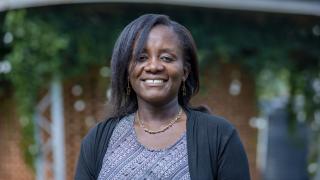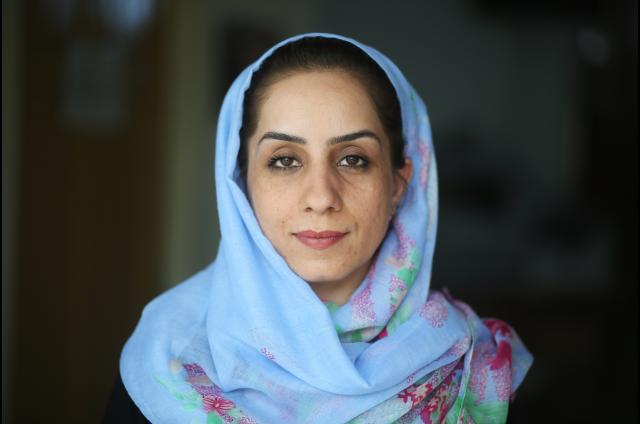We are Congolese Women, and We Are Leaders
I have the privilege of being an activist. Through my work, I’ve had the privilege of supporting women in many countries across Africa, such as South Africa, Zimbabwe, Zambia, Kenya and South Sudan. I meet great women leaders from around the world and draw inspiration from them. But as a woman born in the Democratic Republic of the Congo who grew up here and studied here, it is here that I can say to women:
I am a Congolese woman. I am a mother. I have a husband. I have worked through difficult and sometimes dangerous situations.
And today I am a leader.

On June 30, 1960, the DRC achieved independence. 60 years down the line in 2020, many Congolese women do not get to enjoy independence. They cannot move freely without fear of sexual violence. They don’t have the power to make decisions in their own home. They require approval from their husbands to go to the health centre or to do any other activities. Too many people still believe that a woman’s only role is reproduction. In believing women’s roles only go as far as their home’s walls, there’s little space to believe that women deserve relaxation much less join political meetings in their community.
When I was a young girl, I learned that I have the power to make change
In secondary school, my classmate would come to class every morning and cry. She endured sexual abuse in her own home. When you are faced with injustice, you don’t need many years of schooling to realise, “This is not right.”
What my friend experienced was not right. But she was still too afraid to approach the head of our school to talk about her situation. This became my first taste of advocacy. I spoke with the head of our school to relay my friend’s situation to create a connection between women, so that the head of our school could support my friend.
This belief that I must stand up when I see things that are not right has defined the course of my life. In law school at the Official University of Bukavu, I learned that women and men have the same human rights. Women and girls in the DRC have attained many of the same legal rights. But to protect those rights and further them to achieve gender equality, there is still work to be done.
Despite much of the progress made at the legal level in favor of women and girls, we still need progress at the implementation level and to shift people’s attitudes towards women.
I have spent the past 15 years as an activist, working towards change in social norms and issues about the inequality between women and men. Through my time at Women for Women International as a trainer, I saw the real change that happens in women’s lives when we invest in them.
It’s why I returned as a director. I know how important it is for me to be here and to have an influence. It’s not often people here see a woman in my position. It’s important that I can say to women in our community:
“I’m like you, and you can be like me. You have power. You can also be a leader.”
As the DRC celebrates 60 years of independence, I celebrate the women around me in the Congo. I believe that we are all leaders.
The impact of women’s leadership is large and collectively leads to communities and systems transforming.
It starts with one woman, getting up every morning despite enduring trauma, war, and poverty, excited to attend class and learn something. She applies what she learns and makes an income. As she transforms her own life, she makes a choice to transform the world for girls who come after her, and keeps her daughter in school because she understands the importance of women’s education.
She believes that boys and girls — who become men and women — should share similar levels of housework. She becomes an active agent for change in her community.
Congolese women recognise the injustice in our communities. They have said, “This is not right,” and are using their power to stand up for one another against the many injustices people face. We are all leaders – and as I honour our past, I take pride in the women leading us into the future.
Women for Women International's work in the DRC is generously supported by players of People's Postcode Lottery.

